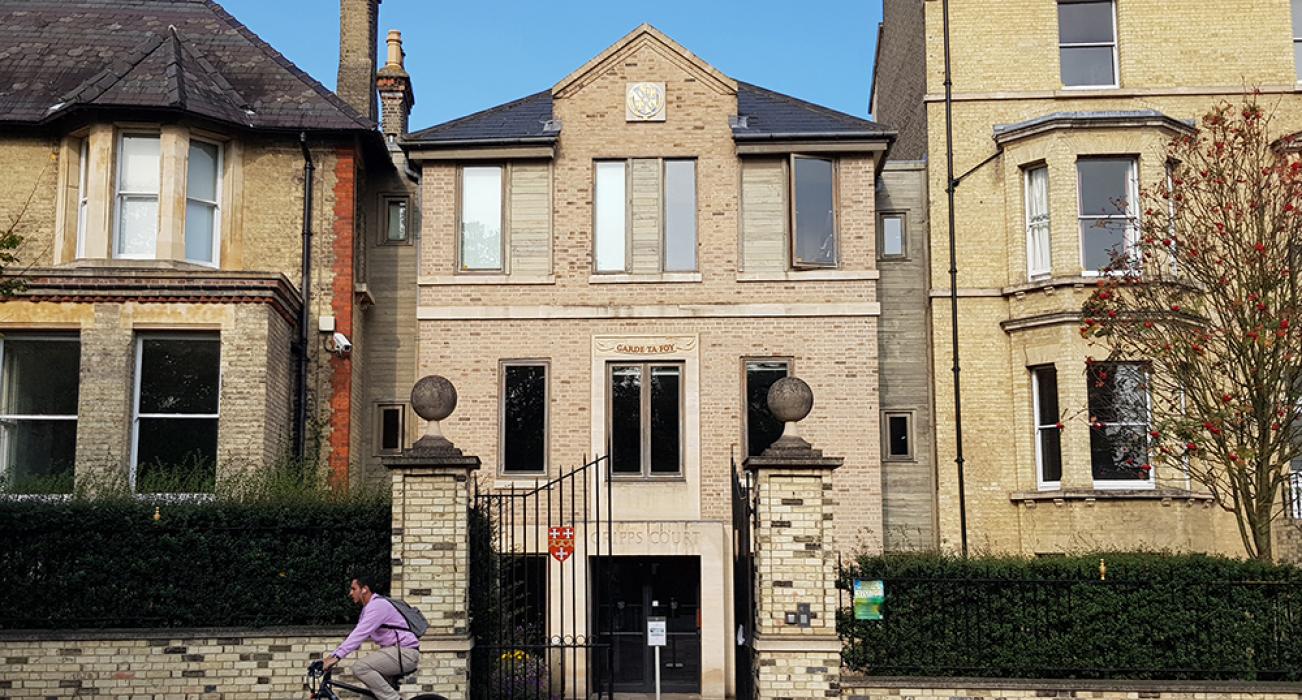"Erasing Art" Exhibition + Lecture + Poetry Workshop
Magdalene College will be hosting a multi-pronged event on 10 March at Cripps Court in the Cripps Auditorium and Gallery.
All are welcome to attend for either the exhibition, the lecture and/or the poetry workshop!
Programme
2:30pm - 6:30pm: Exhibition of Livre d’artiste: Ali e t o lo ss: The Book (Trolltrumma, Stockholm, 2017), by Elisabeth Waltregny and Michel Delville.
4:00pm -5:00pm: “ERASING ART”: The Lecture by Michel Delville (University of Liège). Chaired by Jane Monson.
5:00pm - 6:00pm: Poetry workshop on Erasurism, with Jane Monson. An informal workshop at the Erasurist table, inviting participants to share their responses to the exhibition and theme and take part in an Erasurist writing exercise.
Drinks will be served for all attendees at 6.00pm.
The People
Elisabeth Waltregny is a visual artist based in Liège, Belgium. She holds a degree in photography from the Ecole supérieure des Arts de Saint-Luc and graduated in modern languages and literature from the University of Liège.
Michel Delville is a lecturer, writer and musician born in Belgium. He teaches English, American, and comparative literature at the University of Liège, where he directs the Interdisciplinary Center for Applied Poetics. He is the author or co-author of ca. twenty books including The American Prose Poem (1998), J.G. Ballard (1998), Hamlet & Co (2001), Frank Zappa, Captain Beefheart, and the Secret History of Maximalism (2005; w. Andrew Norris), Eating the Avant-Garde (2009), Crossroads Poetics (2013), Radiohead : OK Computer (2015), Undoing Art (2017; w. Mary Ann Caws) and The Politics and Aesthetics of Hunger and Disgust (2017; w. Andrew Norris), as well as several poetry collections.
Jane Monson is a mentor at the University of Cambridge and also works as a freelance writer, teacher and academic book-seller. Jane has run independent Creative Writing courses in Cambridge, London and abroad and is widely published as a poet, reviewer and essayist. Her collections of prose poetry include Speaking Without Tongues (2010), The Shared Surface (2013) and a critically acclaimed anthology of contemporary British prose poetry (2011), all published by Cinnamon Press. Her new edited book of essays on the prose poem, British Prose Poetry: The Poems Without Lines, is out this year with Palgrave Macmillan.
The Theme
One of the earliest examples of textual erasurism in contemporary poetry is Ronald Johnson’s 1977 RADI OS, a partial obliteration of the first four books of John Milton’s Paradise Lost preserving only a few words from each page of the original text. Ali e t o lo ss subjects Lewis Carroll’s Ali(c)e T(hr)o(ugh the) Lo(oking Gla)ss to a similar treatment, revealing the lyrical backbone of the source-text, isolating some of its vital semantic “organs” while simultaneously responding to the deep and complex forms of Elisabeth Waltregny’s photographs, which were themselves inspired by Lewis Carroll’s specular worlds. Each poem is composed of words taken from one of the twelve chapters of Alice in the order in which they appear, the line breaks indicating the « gaps » in the source-text.
The success story of erasurist poetics in the contemporary art world has so far been ignored or relegated to the margins of literary and art history. Erasurism is rooted as much in contemporary philosophy’s deconstructionist turn as in Duchampian found objects and Situationist détournements, of which many of the examples examined in this talk constitute both an extension and a critique.In an age of uncertainty in which “suspicious readings” have become the norm, the disfiguration of found texts has been an important part of experimental literary and artistic production since the 1960s. To some, erasure art will appear a belated revisitation or, worse, a depoliticized rip-off of the familiar collagist, plagiarist and other foundist methods of modernism and/or a mere epiphenomenon of the much-celebrated cut-up method, the writing-through experiments of John Cage or Jackson MacLow, or what Kenneth Goldsmith recently theorized and promoted as “uncreative writing”. Others will regard it as an interventionist trend which seeks to rescue the critical and revolutionary potential of experimentalism from the aporias of postmodern pastiche and quotationism.
Poised between effacement and defacement, erasurism pursues a logic which considers the artwork as an unfinished object that awaits future readings and negotiations to be provisionally refashioned, recycled and reconsumed. As the source text becomes the model for the artists and the victim of their transgressions and violations, the boundaries between creator and creature, process and product, producer and consumer, are dimmed in a haze of colliding gestures and intepretations. This talk concentrates on examples from literature (Tom Phillips, Ronald Johnson, Jen Bervin), film (Stan Brakhage, Paul Sharits, Martin Arnold), painting (Gerhard Richter, Jenny Holzer), photography (Alicia Framis, Jonathan Monk) and comic books (Jochen Gerner) enacting different but related forms of poetic appropriations of the materiality of text, book and body.
Location
Cripps Court
1-3 Chesterton Rd, Cambridge CB4 3AD, UK
